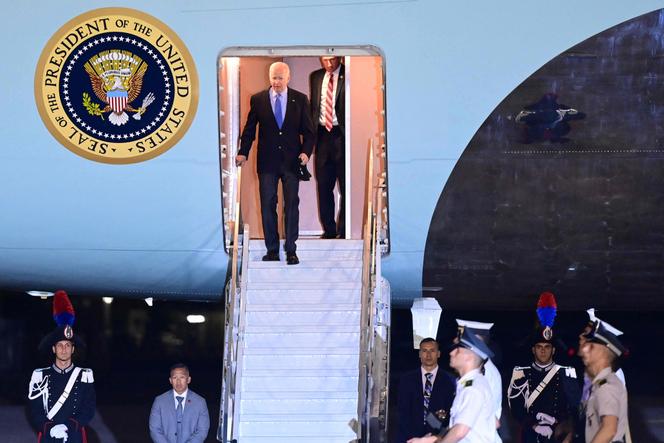


Volodymyr Zelensky would not have missed such an opportunity to plead his country's cause in Russia's war of aggression. On June 13 and 14, the Ukrainian president is due to attend the G7 summit in Puglia, Italy, with the leaders of the world's richest democratic countries: Canada, France, Germany, Italy, Japan, the United States and the United Kingdom. Additionally, the meeting, chaired by the head of the Italian government, Georgia Meloni, will also welcome 15 representatives of countries from the non-aligned Global South, who have been determined not to take sides between Russia and Ukraine since the start of the conflict.
Indian Prime Minister Narendra Modi and Brazilian President Luiz Inacio Lula da Silva, who has maintained a relationship with Russian President Vladimir Putin, will both be present. Although Saudi Crown Prince Mohammed bin Salman ("MBS") declined at the last minute, Algerian President Abdelmadjid Tebboune, Argentine President Javier Milei, Tunisian President Kais Saied and Kenyan President William Ruto will also be present. Even Pope Francis will be taking part in a session on artificial intelligence on Friday.
According to Arturo Varvelli, of the European Council on Foreign Relations (ECFR), this summit is an "opportunity to broaden and deepen affinities and alliances with important medium-sized powers, which the West intends to distance from the Chinese or Russian sphere." "It is emblematic of the way in which the G7 is gradually turning into a control room for relations with these powers," he added. In the meantime, the G7 is regrouping afterbeing the coordinator of Western sanctions against Moscow following the Russian invasion. Some guest states such as India, Turkey and the United Arab Emirates have either not adopted or are finding ways to bypass them.
For the West, the stakes are of the utmost importance, at a time when they are seeking to provide long-term support for Ukraine, which is experiencing difficulties on the battlefield. The G7 leaders are due to agree on a new $50 billion (€46.2 billion) "solidarity loan" to Kyiv by the end of the year, the details of which are causing friction between the US, France and Germany. It will be up to the countries' finance ministers to reach a compromise on the details, before Donald Trump's potential return to the White House.
The situation on the diplomatic front is much more complex. Since the October 7 Hamas attacks on Israel and the Israeli retaliation in the Gaza Strip, the search for support from countries in the South has become even more difficult. Western leaders, led by Joe Biden, have been accused of a "double standard" when it comes to the support given to Israel by Ukraine's allies, to the detriment of the Palestinian cause. Varvelli believes it would be important for the G7 to push for a ceasefire in the largely destroyed enclave and move toward a new "security architecture" to ensure the coexistence of the Israel and Palestine.
You have 62.97% of this article left to read. The rest is for subscribers only.
